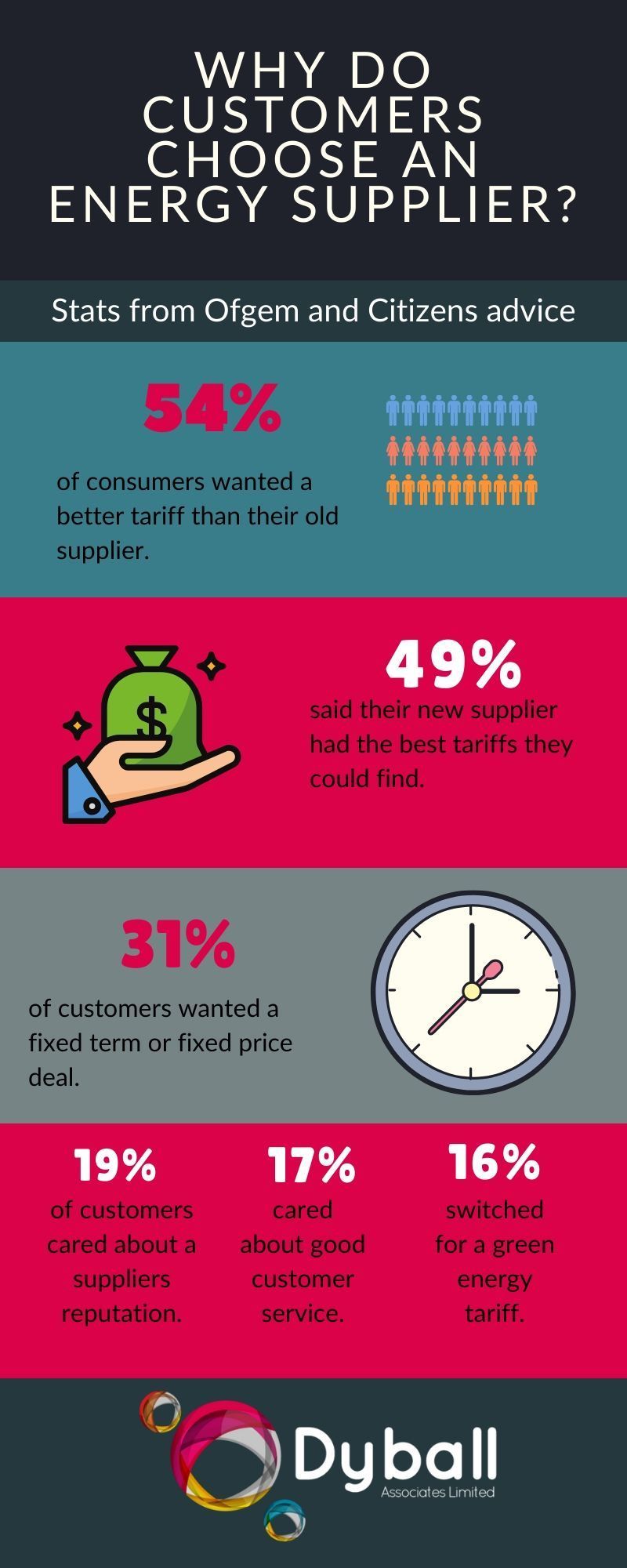Blog Post
Cost of Energy Bills remains the top reason why Customers switch supplier
Matt Olney • April 15, 2020
Recently released research conducted by Citizens Advice and the energy regulator Ofgem has shown that the cost of energy bills remains the main reason why energy customers choose to switch their energy supplier.
Energy Billing the key factor
The survey asked customers several questions about why they would switch provider and the top three responses were cost-related.
Cheaper energy bills, getting a better tariff and the best deals were the most common responses.
When pressed by the interviewer for non-money related reasons the respondents put issues such as customer service as secondary considerations.
Read more:
The 2020 Energy Price Wars have begun
The survey follows the release of the latest energy switching report published by Energy UK that showed an increase of over 100,000 switches were made in February compared to the same month the year before.
Could Coronavirus lockdown lead to a surge of energy switching?
The nationwide lockdown could result in a sharp increase in the number of consumers switching their energy supplier.
Many face financial difficulties and will be looking at more ways to cut back on expenses and save money especially as most will see their home energy usage increase dramatically.
With more free time on their hands, consumers will no doubt be searching for the best deals for their energy consumption.
Energy suppliers are feeling the pressure too due to the decline in business energy usage, but they could also use this time to grow their consumer base.
Offering cheaper tariffs then their competitors during this time could allow them to grow their number of customers and allow them to be in a stronger position once things return to some semblance of normality.
2019 was a record year for electricity switching, with 6.4 million households switching supplier, 9% more than the previous year. 2020 could witness even more switching.
Combining the figures for January and February 2020's figures show that there have already been over 1 million electricity switches so far in 2020. This compares with around 835,000 at this point in 2019.
Energy Price is a main driver
The survey's findings also covered a wide range of issues from smart meters to customer service, but when it comes down to it the price of the energy on offer was key.
Focus on pricing
Competition between energy suppliers is increasingly fierce with more challenger brands offering cheaper tariffs than their larger competitors as they attempt to establish themselves and take a slice of the consumer market.
Many challenger brands have criticised the larger suppliers for setting their prices too close to the energy price cap and effectively stifling choice on the market.
Newer suppliers such as Bulb are consistently pricing below the price cap and announced that its prices would be £218 below the cap.
Other challenger brands have followed suit much to the ire of the bigger players.
Further Reading
Dyball Associates are proud to help new supply businesses
successfully launch in the UK market and support existing suppliers.
Through our energy market consultancy services, and the software we’ve developed, we’re supporting new UK electricity and gas suppliers get set up and start supplying.
For more information on how to start and manage an energy company, get in touch
with Dyball Associates today.
Follow us on Twitter
and LinkedIn
to keep up to date with the latest news and updates in the energy industry.





